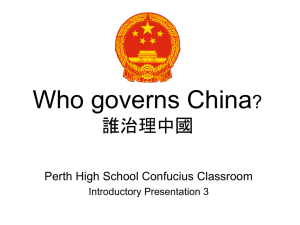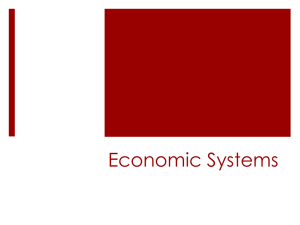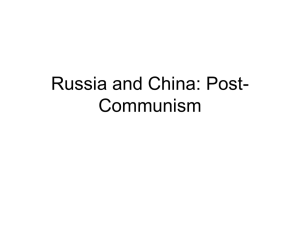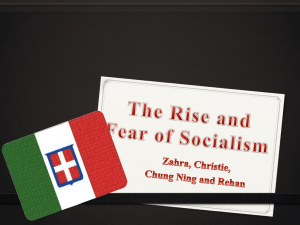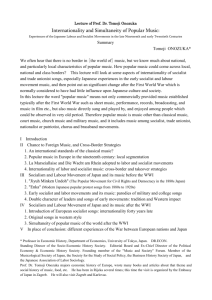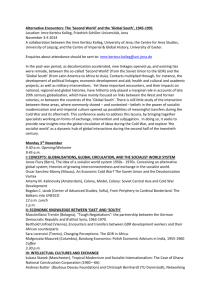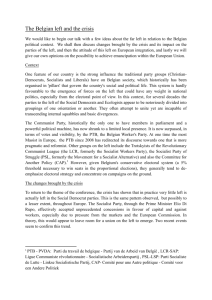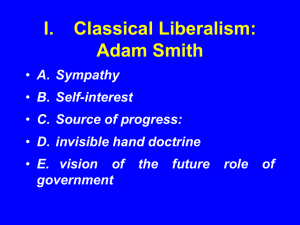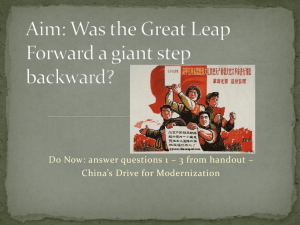Document
advertisement
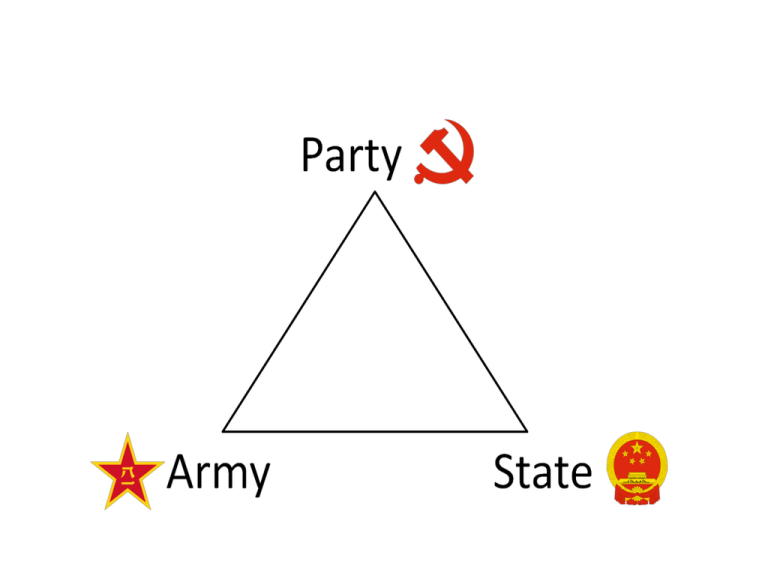
The Emblem of the Communist Party of China “Under the leadership of the Communist Party of China and the guidance of Marxism-Leninism and Mao Zedong Thought, the Chinese people of all nationalities will continue to adhere to the people's democratic dictatorship and the socialist road, steadily improve socialist institutions, develop socialist democracy, improve the socialist legal system, and work hard and self-reliantly to modernize the country's industry, agriculture, national defense and science and technology step by step to turn China into a socialist country with a high level of culture and democracy.” -- Preamble to the PRC Constitution 中国各族人民将继续在中国共产党领导下, 在马克思列宁主义、毛泽东思想、邓小平理 论和“三个代表”重要思想指引下,坚持人 民民主专政,坚持社会主义道路,坚持改革 开放,不断完善社会主义的各项制度,发展 社会主义市场经济,发展社会主义民主,健 全社会主义法制,自力更生,艰苦奋斗,逐 步实现工业、农业、国防和科学技术的现代 化,推动物质文明、政治文明和精神文明协 调发展,把我国建设成为富强、民主、文明 的社会主义国家。 The 18th National Congress November 8 - 14, 2012 • • • • • Politburo Standing Committee: 7 Politburo: 25 Central Committee: 205 (171 alternates) Party Congress Delegates: 2270 Members: 80 million Politburo Standing Committee • Xi Jinping 习近平, General Secretary, Chairman of the Central Military Comission, borned in 1953 • Li Keqiang 李克强, 1953 • Zhang Dejiang 张德江, 1946, • Yu Zhengsheng 俞正声, 1945, 68 years old • Liu Yunshan 刘云山, 1947 • Wang Qishan 王岐山, 1948 • Zhang Gaoli 张高丽, 1946 Figuring out how to transfer power at the top in the absence of an open and legitimate leadership selection process is the biggest political challenge China faces. Most authoritarian governments are brought down by splits in the leadership, not by revolts of the masses. Two thirds of the authoritarian leaders who were overthrown from 1946-2008, were deposed by élite insiders. China's leaders still remember the lesson of the 1989 Tiananmen crisis: What brought the PRC to the brink of collapse was the split in the leadership over how to respond to the protests, not the protests themselves. After Mao Zedong died, Deng Xiaoping tried to stabilize Party rule by institutionalizing a system of term limits and mandatory retirement. Getting Jiang Zemin to step down as general secretary in 2002 was a significant achievement--the first time a major communist leader left office peacefully. As they compete with one another, however, Chinese politicians are making and remaking the rules, most of which are neither written down nor publicly articulated. They sometimes expand the size of the Politburo, China's top governing body of roughly two dozen, and of its inner core the Politburo Standing Committee to balance the power of different groups. The upper age limit for appointment to the leadership bodies has been lowered over time--it is now sixty-seven--as the leaders have used it as a convenient tactic for eliminating rivals and reducing the number of eligible contenders. BBC NEWSNIGHT (8 Nov 2012): China's New Leaders. http://www.youtube.com/watch?NR=1&feature=endscreen&v=mQJjhaYR-Ws Who is Xi Jinping? http://www.youtube.com/watch?feature=endscreen&v=-z0-wtUeerw&NR=1 Research Ideas: 1. Democratization of the CCP 党内民主:冯桂芬、美国政党初选 2. 一篇纽约时报中文版的文章谈党内民主 http://cn.nytimes.com/article/china/2012/09/24/cc24qiangang6/

